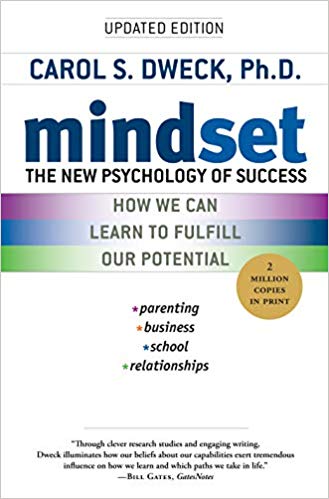Several decades ago, American psychologist Carol Dweck was observing the attitude of a group of students in the face of failure.
She noticed that while some students didn’t have any problem in rebounding after setbacks, others became frustrated when faced with setbacks– even small ones. Based on her observations, she coined the terms ‘growth mindset’ and ‘business mindset’.
When it comes to business, it’s been said that adopting a growth mindset– the mindset that calls for being open to improvements and accepting failures– can hold you back. So, why exactly does that happen?
Today, we are going to explain why a growth mindset can hold you back in business.

Mindset
by Carole Deck
⏱ 13 minutes reading time
🎧 Audio version available
According to Dweck, a fixed mindset assumes that, whether it’s our personality, intelligence, skills, or abilities, they have a certain limit that can’t be surpassed. On the other hand, a growth mindset assumes that there’s always a chance to grow and develop abilities and skills with time and effort.
After taking a closer look at those mindsets, you would think that adopting a growth mindset is the way to go when it comes to business. Surprisingly, the reality can be the complete opposite of that, and a growth mindset can have a negative impact on your business when it’s not applied correctly.
The thing is, a growth mindset that’s been researched properly and used correctly in organizations or companies, will make a drastic difference– and this is exactly what was discovered after preliminary analyses were done on some of the world’s top companies and organizations. They adopted the whole growth mindset theory after adequately researching it and stuck to its science to a T, which explains their success.
However, in that same study, much to the researchers’ surprise, they found that there were companies that adopted a growth mindset, but it didn’t work.
So, what for them?
Well, we will start with growth mindset misconceptions and myths people believe that are a result of insufficient research.
Myth 1: People Have either a Fixed mindset or a Growth Mindset
One of the most common myths that people mistakenly believe is that each person can adopt a fixed mindset or a growth mindset.
However, the truth of the matter is, people can shift from one mindset to another, and it happens all the time. In addition, a person can have both mindsets in a way that they hold a fixed mindset about a specific area in their lives, while adopting a growth mindset in other areas.
Myth 2: A Business Can Have a Growth Mindset
Another misconception that’s more associated with business owners is that they think of their business or company as a whole, and that their business itself can have a growth mindset. It might sound illogical, but there are countless businesses that stand behind that belief.
Given the fact that businesses can’t think for themselves, and growth mindset is a state of mind, businesses can’t adopt growth mindsets. On the other hand, the employees in the business can adopt either or both mindsets, and this is where the leaders come into play.
They can help their employees to learn more about growth mindset by detailing the science behind it and helping them understand how they can make the switch to a growth mindset in this specific area.
Myth 3: Growth Mindset is Limitless
It’s often said that a growth mindset is about being limitless. You can do whatever you set your mind to, right?
Well, not exactly.
It’s true that a growth mindset is synonymous with freedom. It allows you to be resilient in the face of failure, embrace challenges that come along, cultivate and improve the skills, abilities, and talents that you have, and focus on the process as a whole, and not just the outcome.
No one is saying that these things are wrong; however, what’s wrong is to think that, with a growth mindset, an engineer can become a surgeon or an opera singer can become an Olympic diver, for example.
A growth mindset doesn’t and shouldn’t include limitless possibilities. And, even if employees have adopted a growth mindset, that shouldn’t allow them to think that resources are infinite and they can do anything.
The feeling of being limitless can distract the employees from focusing on what they truly excel at and as a result, the outcome will be far from what was expected . It’s important that business owners recognize that they need to keep in mind each of their employees’ capacity and what they can and can’t do.
Myth 4: Growth Mindset is Synonymous With Being Positive
A grave mistake that business owners make with their employees when it comes to a growth mindset is whenever employees state that they’re overwhelmed with work, they are chastised because after all, they think that they should be able to do whatever they set their mind to.
Not only is this extremely counterproductive, but it will also put a lot of pressure on the employees, who will continue working on things that aren’t within their capability. When employees are overwhelmed, attacking and blaming their mindset will have a negative impact on their productivity and overall mental health.
Myth 5: You Can’t Succeed Unless You Have a Growth Mindset
People often think the one and only way to success is a growth mindset. While it’s important to adopt a mindset that will allow you to improve your skills and abilities, and encourage you to do your best, having a fixed mindset, or a limiting mindset as some would call, doesn’t mean that it’s a path to failure.
There are people out there who have a fixed mindset and yet, are still extremely successful. However, what helps them reach that level of success is how they define that success. If someone with a fixed mindset measures their success as the outcome that’s the result of outperforming their competition, it’s highly likely that this mindset will catapult them to success.
They set their own fixed standards very high and are able to reach them.
Now that we’ve established the misconceptions and myths that can cause a growth mindset to hold you back in business, let’s take a look at how to adopt a growth mindset in the right way.
It Starts With the Recruitment
Businesses are constantly growing and always changing, and as these changes happen, some individuals will struggle with coming up with innovative ideas and solutions. The business will stall and it’s safe to say that it’ll hit a wall.
In order to adopt a growth mindset that will keep your business from hitting a roadblock, it’s important to consider people’s capacity during the recruitment process. People who demonstrate that they’re willing to learn and open to ideas are the ones that you should include in your team. They value learning and are passionate about it, and because of this, they will be a great asset for the business.
Related: Why You Can (And Should) Embrace a Growth Mindset
Building a Culture
As much as it’s important to build a learning culture, it’s equally as important to cultivate a culture where it’s okay to take risks and accept their outcome, good or bad. In any business, failure is an inevitable part of the process; there’s just no way around it. But, it’s not the end of the world– and this point is where a growth mindset differs from a fixed mindset.
Adopting a growth mindset will help employees recognize that failure is inevitable. However, whether it’s with innovation, creativity, or a fiery passion, there are ways that can help move a business forward and bounce back from setbacks.
Hold Yourself 100% Accountable
Holding yourself accountable to everything that happens within the business and demonstrating that accountability is a great way to lead a team. It’s necessary to set a great example for your employees and make accountability a part of your business’s culture.
In addition, you should give your 100% to the business. It’s really not realistic– and not to mention illogical– to think that by putting in 10%, the outcome will be more than that. When you put in less than your potential, then the outcome will be less than you expect.
All things considered, adopting a growth mindset will only work if you do it the right way by building a culture where everyone is on board with the right mindset and where it’s always encouraged to embrace improvements, accept failures, and live with a purpose.
What Is Snapreads?

With the Snapreads app, you get the key insights from the best nonfiction books in minutes, not hours or days. Our experts transform these books into quick, memorable, easy-to-understand insights you can read when you have the time or listen to them on the go.


